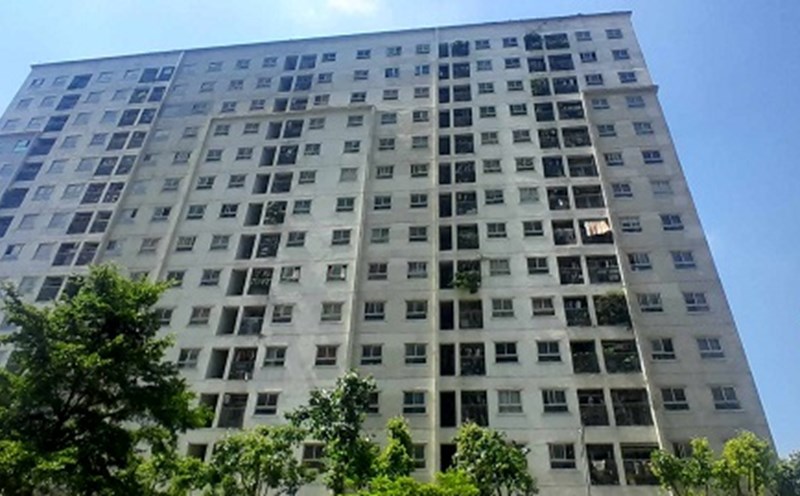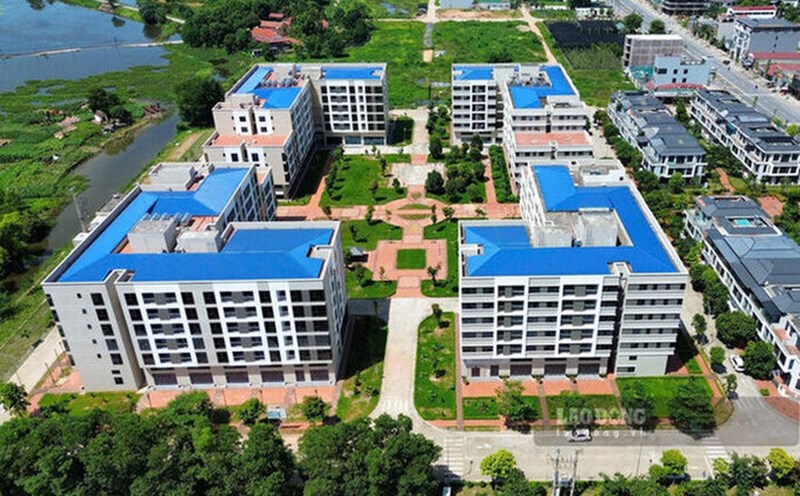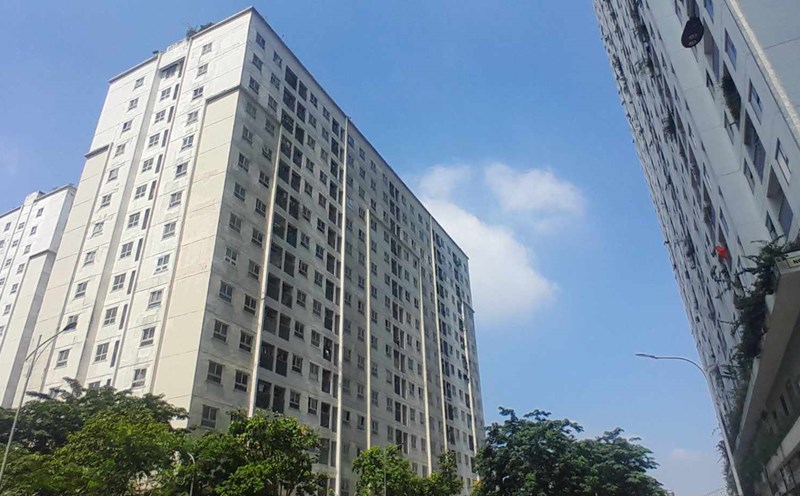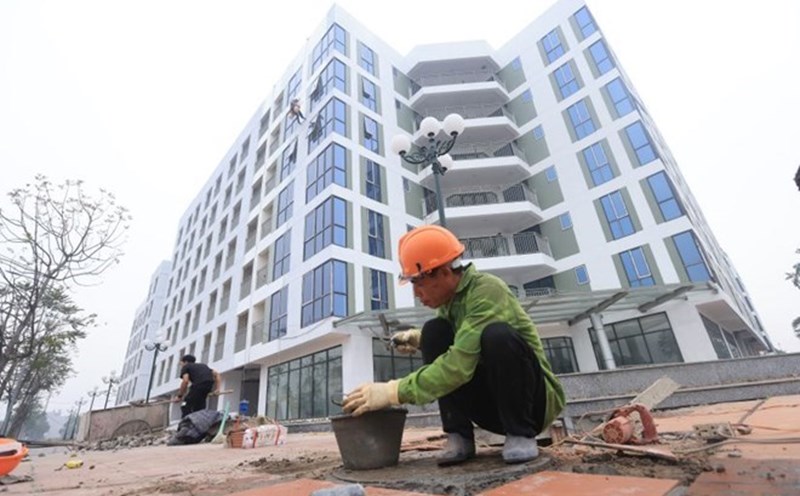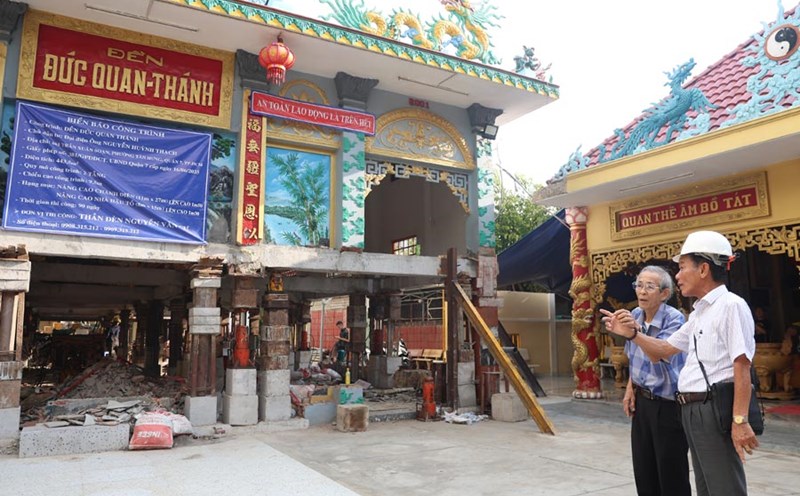Supply improves but disbursement is still "shortage"
As of mid-2025, the whole country has only completed more than 35,000 out of 100,000 social housing units set up by the end of this year. Currently, there are 159 projects under implementation with a scale of 135,563 units and 419 projects approved for investment, a total of nearly 420,000 apartments. Hanoi alone plans to complete 6 projects this year, providing 4,730 units - exceeding the assigned target.
Mr. Nguyen The Diep - Vice President of Hanoi Real Estate Club - commented that recently, the supply of social housing has increased significantly, initially contributing to reducing housing pressure for low-income people. However, many localities are still slow in allocating land funds according to regulations with a minimum of 20% of residential land for social housing development.
A major bottleneck is the disbursement of a preferential credit package of VND 120,000 billion. Although interest rates have been adjusted down many times and the total committed limit is up to VND 145,000 billion, so far only about VND 3,400 billion has been disbursed.
Mr. Do Van Thach - General Director of Dova Land - said: "The problem is not capital costs but due to complicated legal procedures, overlapping land fund determination and project approval processes. Many localities have not really proactively integrated social housing into urban planning".
Expanding subjects, increasing motivation for businesses
According to experts, for the social housing development program to be effective, the State needs to proactively create a "clean land" fund with ready infrastructure, and at the same time build a separate land valuation mechanism for this type of housing, in order to shorten the appraisal and approval time.
In addition, administrative procedures need to be strongly reformed in the direction of "one door - one unit". Social housing is a deeply humane policy. But if the bottlenecks in implementation are not removed, it will be difficult to achieve the expected results" - Mr. Thach emphasized.
Professor Dang Hung Vo commented that with the number of projects under and about to be implemented, the target of 1 million apartments can be completely achieved. However, the number of apartments does not mean completely solving the housing needs of low-income people.
According to him, it is necessary to re-evaluate the actual scale of demand to adjust the target appropriately. At the same time, it is necessary to clearly distinguish between "social housing" - with direct subsidies - and "income-appropriate housing", which is a market product with indirect support through tax and credit policies.
A worrying paradox is that many social housing projects are sold without buyers, while elsewhere there is speculation because some people have very low official incomes but very strong left-handed income. The current social housing price has reached 20 million VND/m2 - a price that low-income people are still unable to access. Meanwhile, the approval mechanism is still loose, and actual income cannot be controlled, so it is easy to take advantage.
Therefore, according to him, it is necessary to review all policies from the stage of determining real needs, mechanisms for selecting subjects, forms of support to the role of the State and businesses - to ensure that policies are practical and to the right subjects.
Dr. Nguyen Tri Hieu - Director of the Institute for Research and Development of Global Financial and Real Estate Markets - said: Social housing policies need to be adjusted to better suit the current reality of diverse income. At the same time, it is necessary to allow a higher profit margin to create motivation for businesses to participate. When businesses have more motivation, people have better access to capital, land funds are ready and administrative procedures are strongly reformed, the target of 1 million apartments can be completely achieved in the next 5 years.
According to Mr. Hieu's analysis, the 10% profit limit is too low, while the rate of 20% is enough to attract real estate businesses. If this is not improved, social housing will only be done for social responsibility, not for economic efficiency.

